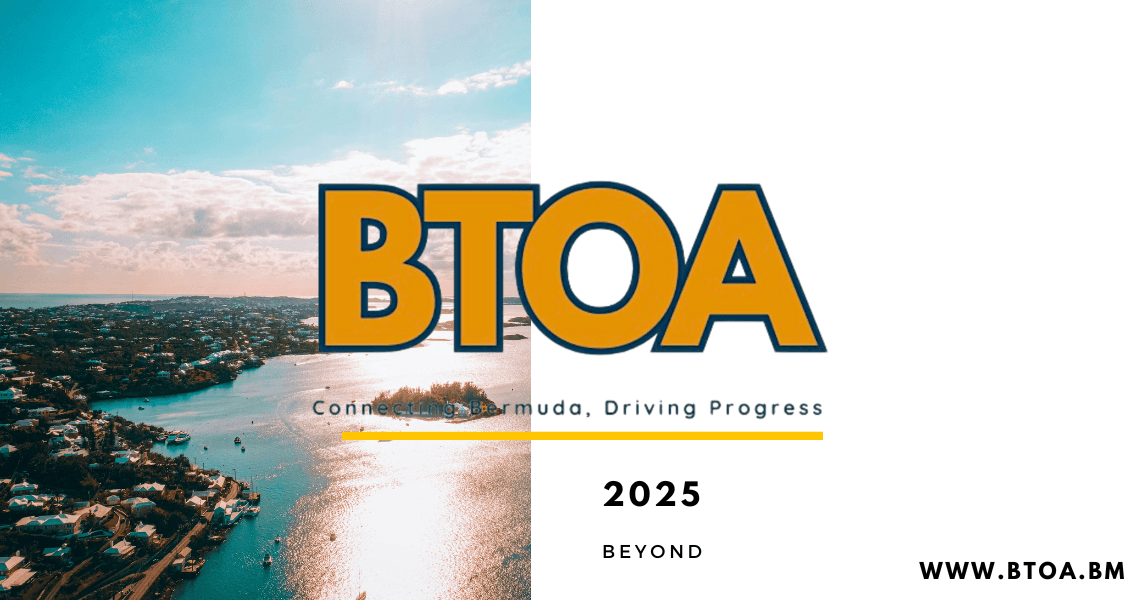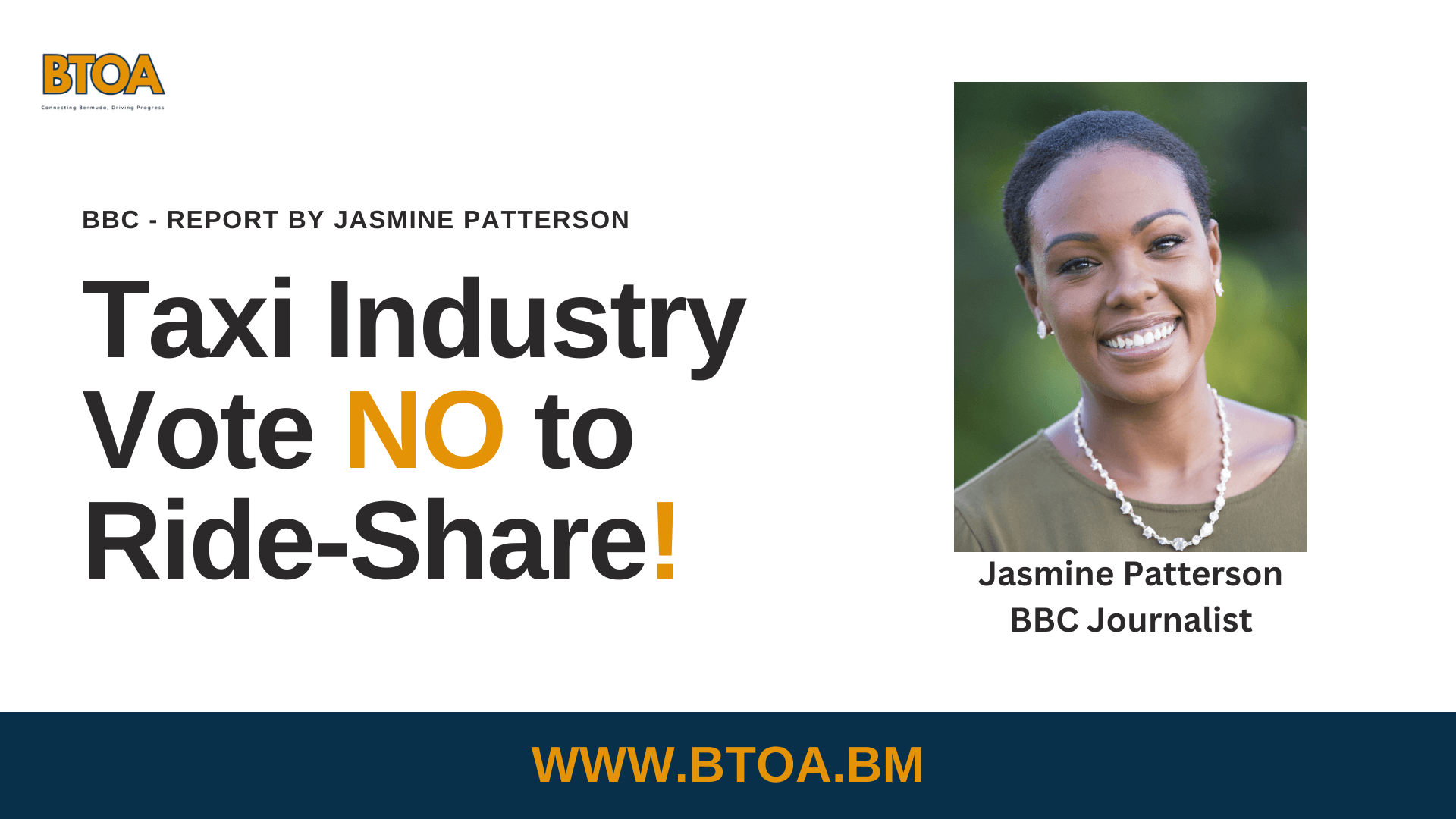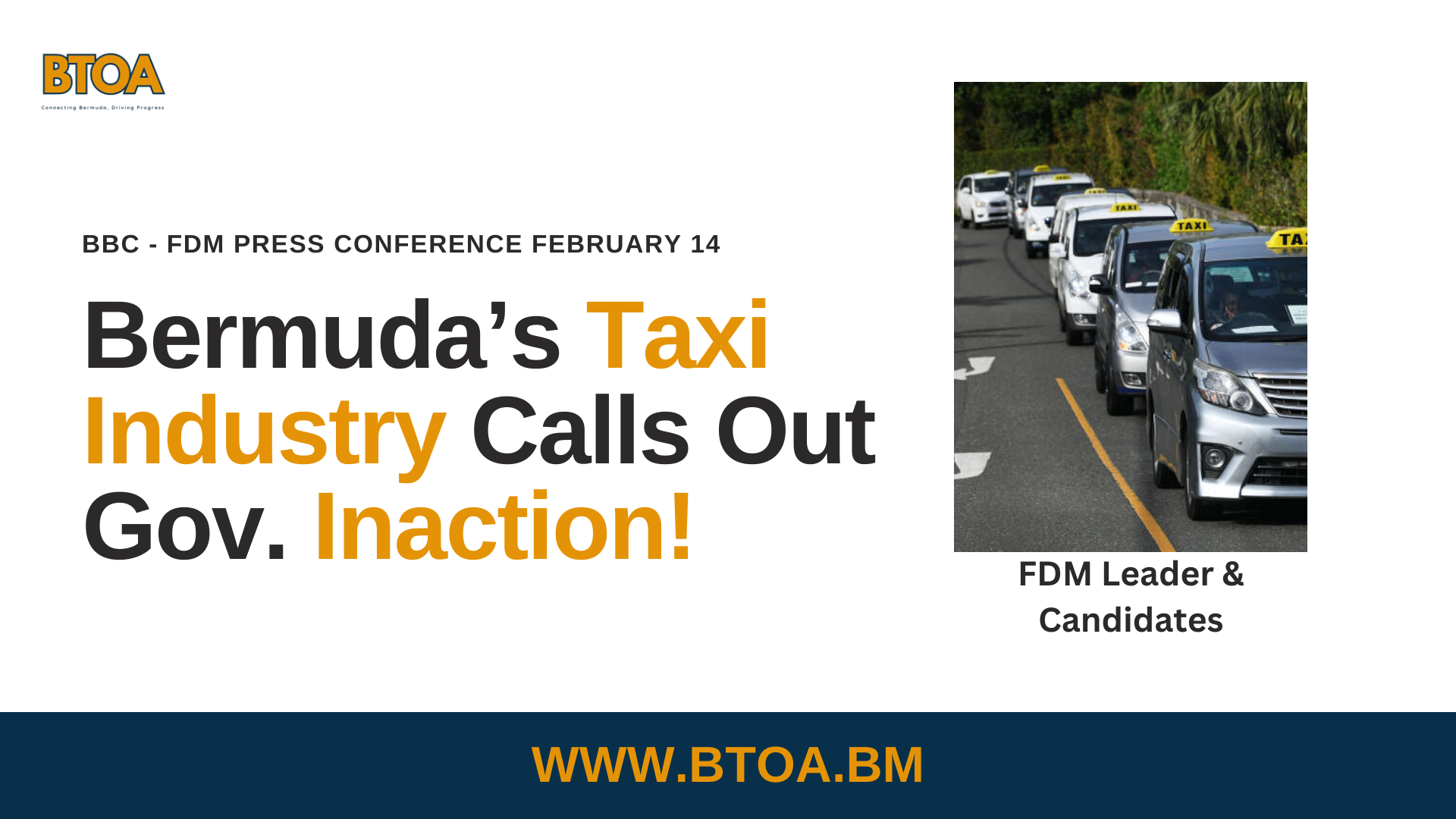Ride-Share vs. Reality 3:
Follow the Money by BTOA

In our first two articles, we asked two simple questions: what data justifies the ride-share pilot, and who is regulating it? The answers were sobering: there is no reliable data, and regulators have admitted they stopped enforcing key taxi laws more than a decade ago.
Now we turn to a third question: who stands to profit from Bermuda’s ride-share pilot, and who will bear the costs?
The government plans to introduce 150 ride-share permits into an already fragile transportation system. Each permit costs $1,000. On the surface, this looks like an easy revenue boost and a fix to shortages. But the real money flows elsewhere — to dispatch companies and private interests — while the risks and costs fall on taxi owners, drivers, and the public.
The Economics of Ride-Share in Bermuda
The government will collect $150,000 in permit fees. Compared to the millions invested by taxi owners over decades, this is a token sum. Traditional permit holders spend tens of thousands on vehicles, licences, insurance, and annual maintenance to meet strict regulatory requirements. Ride-share operators, meanwhile, enter the market for just $1,000 and use their private vehicles part-time.
This creates a two-tier system: one class of operator bearing heavy, long-term investment and strict regulation; another class entering cheaply with lighter oversight.
Dispatch Companies: The Quiet Winners
The real financial beneficiaries of ride-sharing are the dispatch companies and their shareholders. Bermuda has four licensed dispatch services. Under the pilot, every ride-share job must flow through their apps.
That means:
- 150 new drivers added to their platforms at no extra subscription cost.
- Revenue streams are based on commission per ride rather than fixed monthly fees.
- No public obligation to share profit figures or operational data, despite statutory obligations under the Motor Car Act 1951 and the Taxi Dispatching Service Regulations 1987.
It is worth remembering that dispatch companies have not submitted mandatory reports to the government since at least 2014. In 2018 and 2019, TCD admitted publicly that it had stopped monitoring even the basics, like taxi operating hours, since 2010. If dispatch companies are not filing reports and regulators are not enforcing them, who will track how much they profit from ride-sharing?
Government’s Financial Motive
The government collects the $1,000 permit fees and earns political cover by appearing proactive. It can tell tourists, hotel operators, and residents that it is “fixing” transport without investing in better data collection, enforcement, or long-term reform.
But $150,000 in fees is a small figure compared to the disruption caused to a regulated industry worth millions in vehicles, permits, and livelihoods.
Who Bears the Costs
Taxi owners and operators are the ones most at risk. They have invested heavily in vehicles, permits, and compliance. Their returns are now diluted by new entrants who have not carried the same burdens.
Operators must pay for fuel, insurance, tyres, and maintenance out of their fares. Under ride-share, new part-time operators may treat their work as supplemental income. But for full-time taxi drivers, this is their livelihood. The imbalance threatens to push full-time professionals out of the market.
Passengers, too, may pay the price. Without strict enforcement of insurance and complaint systems, they could be left vulnerable in accidents or disputes. A patchwork industry benefits no one in the long run.
International Evidence: Who Really Profits from Ride-Share
Bermuda is not the first jurisdiction to face this debate. Around the world, ride-share models have followed a familiar pattern:
- Devaluation of taxi permits: In cities like New York and Toronto, the value of traditional taxi medallions collapsed once Uber and Lyft entered the market. Investors who paid hundreds of thousands for permits saw them lose 70–80% of their value in just a few years.
- Driver income erosion: Studies from the U.S. and Europe show that ride-share drivers earn less over time once platform commissions rise and competition saturates. Drivers shoulder all costs — fuel, insurance, maintenance — while companies take a percentage of every fare.
- Platform profit, driver loss: Global research shows that platform owners and shareholders consistently capture more profit than the drivers themselves, even as drivers bear the risks of vehicle ownership and fluctuating demand.
This pattern is not theoretical. It is well-documented internationally. By introducing a Bermuda-specific model where dispatch companies, not international platforms, hold the power, we risk replicating the same results — except the winners will be local dispatch operators instead of Silicon Valley.

The Local Transparency Gap
Here in Bermuda, the transparency gap is even wider.
The Motor Car Act requires dispatch companies to be licensed, to control driver operations, and to submit data on jobs and service availability. It even allows for fines of up to $1,400 per day for non-compliance. Yet in practice, TCD has not enforced these provisions for more than a decade.
If the government has not enforced reporting against dispatch companies since 2014, and admits it has not monitored taxi hours since 2010, what confidence should the public have that ride-share will be held to any higher standard?
Who Benefits, Who Loses
- Winners: Dispatch companies, who profit from commissions without carrying vehicle or insurance costs. Government, which collects modest permit fees and gains political credit for appearing to act.
- Losers: Taxi owners and operators, who see their investments devalued and their work diluted. Passengers, who may face a higher risk and less accountability. The public, who inherit a transport system where profit comes first and enforcement comes last.
A Pattern of Policy Without Proof
BTOA’s position has been consistent. We do not oppose modernization. We support digital platforms, central dispatch, GPS tracking, and transparency. But what we cannot support is a policy built on no data, enforced by regulators who have admitted they do not enforce, and designed to shift profits to a handful of private players.
International evidence is clear: when ride-share is introduced without strong oversight, drivers lose income, permits lose value, and companies take the lion’s share of profit. Bermuda risks repeating that story — only this time, the government has not even shown the evidence or modelling behind its plan.
Conclusion
The ride-share pilot is not a transport solution. It is a revenue scheme that benefits dispatch companies and government optics while undermining the very operators who keep Bermuda moving.
Before a permit is issued, the government must publish:
- The data used to justify 150 new vehicles.
- The economic impact modelling on existing taxi owners and operators.
- The enforcement plan for dispatch companies, insurance compliance, and complaints.
Anything less is not modernization. It is deregulation for profit.
Bermuda deserves better — a transport system built on evidence, accountability, and fairness. Until the government can show the data, prove the oversight, and disclose who really benefits, ride-sharing is not reform. It is exploitation.
Stay with us for Series 4: Ride-Share vs. Reality – The Public’s Voice, where we will explore how passengers, tourists, and the wider community experience these policies in practice.




